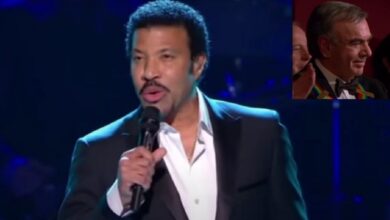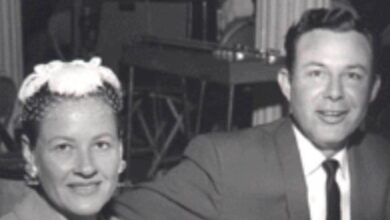Priscilla Expresses That Elvis Pours His Heart Into This Song
Elvis Presley, known widely as the “King of Rock and Roll,” is a figure who requires little explanation. Born on January 8, 1935, in Tupelo, Mississippi, he skyrocketed to fame in the mid-1950s, captivating audiences with his distinctive mix of rockabilly, rhythm and blues, and gospel sounds. With his dynamic stage presence and sultry voice, Elvis quickly became a global superstar, amassing countless devoted fans.
By the late 1960s, Elvis experienced a remarkable revival in his career, partly due to the success of the “68 Comeback Special,” a television event that aired on NBC in December 1968. This special marked a significant turning point for Elvis, highlighting his musical versatility and reaffirming his status as one of the greatest entertainers in history.
A highlight of the “68 Comeback Special” occurred when Elvis performed “If I Can Dream,” a song penned by Walter Earl Brown. This poignant anthem spoke to hope and unity during a challenging time in American history. Set against a backdrop of social unrest and political strife, Elvis’s rendition resonated deeply with viewers, conveying a powerful message of optimism and resilience.
Dressed entirely in black and supported by a full orchestra and choir, Elvis took to the stage with determination and sincerity. His heartfelt vocals delivered the stirring lyrics, encapsulating the spirit of the era with striking emotion. “If I can dream of a better land, where all my brothers walk hand in hand, tell me why can’t my dream come true?” he sang, his voice filled with passion.
The orchestral backdrop lent grandeur to the performance, while the choir’s harmonies reinforced the song’s themes of unity and solidarity. The moment was a showcase of musical excellence, as Elvis’s commanding presence captivated the audience from beginning to end.
Beyond its artistic merit, Elvis’s performance of “If I Can Dream” held profound cultural significance. During a time when America was deeply fractured along racial, social, and political lines, Elvis used his star power to advocate for peace, equality, and understanding. His impassioned interpretation of the song became a rallying call for unity and hope, resonating with people from all walks of life.
In the years following its debut, Elvis’s rendition of “If I Can Dream” has emerged as a landmark moment in his illustrious career. It serves as a tribute to his lasting legacy as a cultural icon and a beacon of hope and inspiration for generations. Although Elvis may no longer be with us, his music transcends time, continuing to touch the hearts and souls of millions across the globe.





